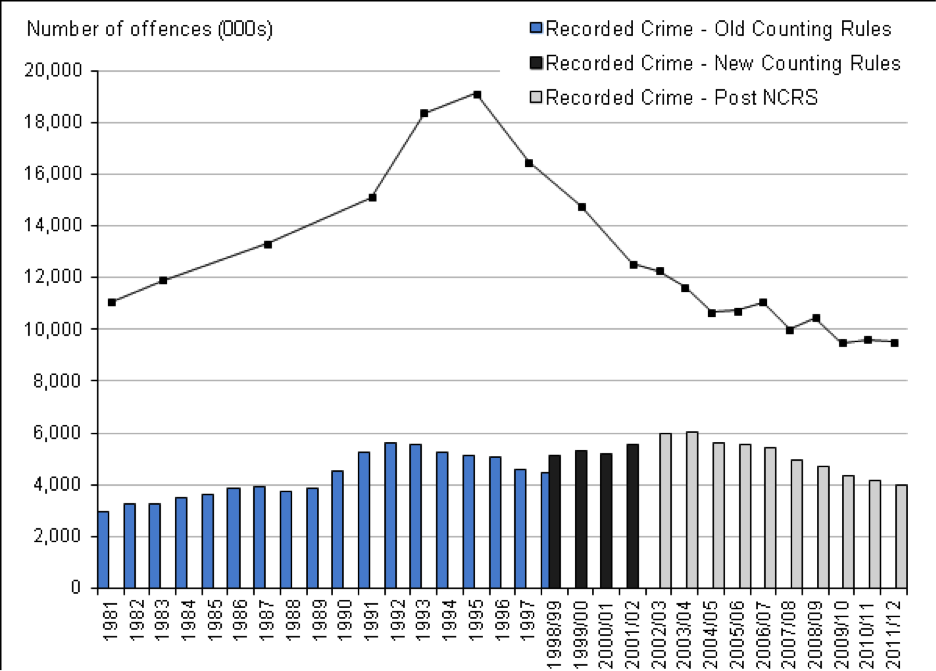25 Jul

The latest report from the Office of National Statistics shows crime rates at their lowest level in 23 years, with homicides down to figures not seen since 1984. This is a striking development which has received far less coverage than it deserves. Crime is like inflation – we’re always inclined to think it’s getting worse, whatever the figures say. To me, they look right. London at least feels a far less violent place than it was 20 years ago. This is a development which bodes well for the future of our neighbourhoods.
What’s the reason? Well, the police of course are taking the credit, saying they’ve improved their detection rates. Hmm. My conjecture is that the mobile revolution is a significant factor which has had a huge effect on public crime in particular. Put yourself in the shoes of the individual about to commit a crime. If for example I was going to break into a house, what might deter me? My first thought: someone walking by sees me climbing in the window and films me. Within minutes the film could be up on YouTube, adding shame to detection. With Google Glass coming down the pipeline, it’s an obtuse criminal that carries on regardless.
Is the news all good? For neighbourhood merchants it’s an unqualified blessing. They can carry on their business relatively free from threat. This may well induce subtle changes in people’s behaviour patterns as they realise that the high street is a much more relaxed and pleasant place in which to shop. This in turn could renew customer loyalty and stop the haemorrhage to the closed security environments run by the supermarkets. It should also bring down insurance premiums for small businesses while rendering many existing security systems obsolete. Because we have moved from a world of static surveillance to mobile, in other words, from being watched by a system, to watching each other, there is far less need for static systems such as CCTV. This should at least do away with much of the paraphernalia of surveillance which has made high streets uglier while delivering tangible benefit only to the taxpayer-funded security industry.
Look too at how mobile surveillance is changing dress codes. The hoodie was a creation of CCTV itself. As most static cameras are placed far above head level, to cheat them, all you do is pull a hood over your poll. But that ruse is no good with mobile surveillance which is carried on at head level and can come from any angle.
Traditional crime is on the wane, but as so often happens, innovation creates as it destroys. The Smartphone attenuates one type of crime at the same time as brings into existence a style which hardly existed before now. If the ‘old-school’ criminal wanted to escape undetected, the criminal of the mobile surveillance regime wants to be detected, he wants the world to see what he’s doing and knows there are lots of willing accomplices around him on the streets ready to offer publicity. If the deed is sufficiently shocking, he could be up there on YouTube for posterity. Fortunately, such towering narcissism is a rare condition. As far as daily living is concerned, to paraphrase a PM from 50 years back, ‘we’ve never had it so safe’.


